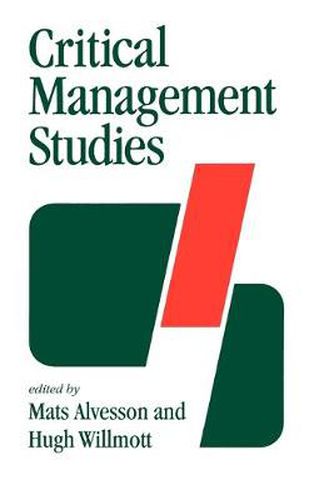Readings Newsletter
Become a Readings Member to make your shopping experience even easier.
Sign in or sign up for free!
You’re not far away from qualifying for FREE standard shipping within Australia
You’ve qualified for FREE standard shipping within Australia
The cart is loading…






Drawing on a range of influential contemporary movements in the social sciences, particularly Critical Theory, this volume introduces a critical analysis for the study of management and the various management functions. The book examines: the relations between power and discursive practices in the modern corporation; the construction of pleasure as a potentially subversive and emancipatory force in organizational life; the double-edged role of a critical social science for managers; and doing critical management research. It also analyzes the nature and consequences of current practices in accounting, operational research, marketing, personnel and organizational psychology and information systems. Key issues of power/knowledge relations across these areas are addressed and new agendas both for these fields and for management studies as a whole are introduced.
$9.00 standard shipping within Australia
FREE standard shipping within Australia for orders over $100.00
Express & International shipping calculated at checkout
Drawing on a range of influential contemporary movements in the social sciences, particularly Critical Theory, this volume introduces a critical analysis for the study of management and the various management functions. The book examines: the relations between power and discursive practices in the modern corporation; the construction of pleasure as a potentially subversive and emancipatory force in organizational life; the double-edged role of a critical social science for managers; and doing critical management research. It also analyzes the nature and consequences of current practices in accounting, operational research, marketing, personnel and organizational psychology and information systems. Key issues of power/knowledge relations across these areas are addressed and new agendas both for these fields and for management studies as a whole are introduced.